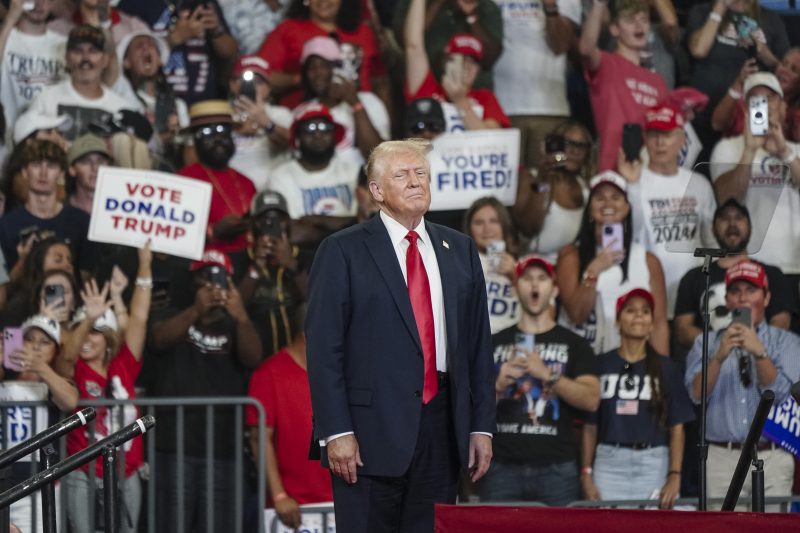In a recent Atlanta rally, former President Donald Trump launched renewed attacks against Republican Georgia Governor Brian Kemp. The event marked another chapter in the ongoing feud between the two prominent figures within the GOP. Trump’s criticisms of Kemp centered on the governor’s handling of the 2020 presidential election and the controversial voting laws in the state of Georgia.
Throughout his rally speech, Trump repeatedly questioned Governor Kemp’s loyalty and commitment to the Republican party. He accused Kemp of failing to adequately address the allegations of election fraud that arose following the 2020 presidential election. Trump’s claims of election irregularities in Georgia have been a central theme in his post-election rhetoric, and he has often singled out Kemp and other Republican officials in the state for not taking decisive action to address his concerns.
One of the key points of contention between Trump and Kemp is the voting legislation passed by the Georgia legislature earlier this year. Trump criticized Kemp for signing the bill into law, which he claimed did not go far enough in addressing his concerns about election integrity. The new voting laws in Georgia have been the subject of national debate, with critics arguing that they disproportionately impact minority voters and restrict access to the ballot box.
Despite the public clash between the two Republicans, Governor Kemp has remained steadfast in his defense of the voting laws and his administration’s handling of the election. Kemp has emphasized the importance of election integrity and has defended the measures taken to secure the election process in Georgia.
Trump’s attacks on Governor Kemp highlight the deep divisions within the Republican party between those loyal to the former president and those seeking to chart a different course for the party. The tensions between Trump and Kemp underscore the ongoing struggle for control and influence within the GOP as it navigates its post-Trump era.
As the feud between Trump and Kemp continues to play out in the political arena, it remains to be seen how their conflict will impact the Republican party in Georgia and beyond. The outcome of this contentious relationship could have far-reaching implications for the future direction of the GOP and its ability to unify behind a common vision.


























